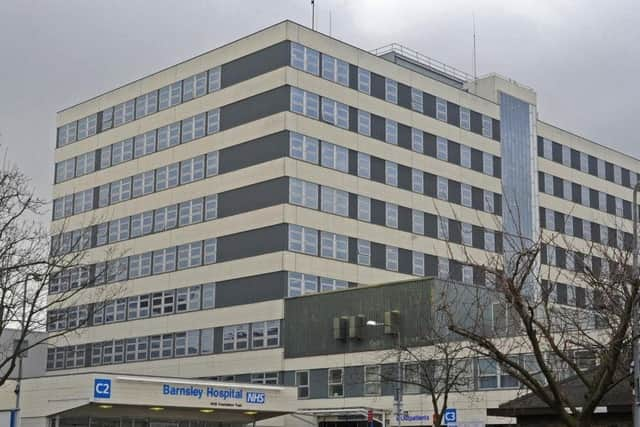Dr Rajeev Gupta: NHS must value its diversity and respect all staff


It is unfortunate then that staff are not always offered the same level of respect. Discrimination against Black and Minority Ethnic (BME) doctors working in the NHS is still very much present.
The results of a recent survey in the British Medical Journal revealed that white consultants were paid almost five per cent higher than that of their BME counterparts.
Advertisement
Hide AdAdvertisement
Hide AdThe NHS is the largest employer of BME staff in the UK accounting for around a third of doctors and a fifth of nurses. Yet they fail to lead by example.


Pay is just one of the barriers. BME staff also report experiencing higher levels of harassment and bullying whilst working in the NHS. There can be no excuse for this type of behaviour; not just for BME staff but for all staff.
We need to see a comprehensive organisational approach that focuses on ensuring worker well-being and good workplace relations, so bullying does not have an environment to thrive in. This must also take into consideration a targeted focus on those groups that are more likely to experience such treatment.
As well as BME staff, a BMA-commissioned survey last year of more than 800 lesbian, gay and bisexual doctors and medical students found that 70 per cent had experienced discrimination, short of harassment or abuse.
Advertisement
Hide AdAdvertisement
Hide AdI have met many doctors, nurses and pharmacists of ethnic origin throughout my time working as a doctor in Yorkshire who have felt discriminated against, and told me the impact this has had on their wellbeing and on their work. This is particularly disheartening when you can see first-hand the invaluable contribution they are making to our health service each day.
Earlier this year, the General Medical Council (GMC) commissioned new research into fitness to practice referrals to establish why certain groups are referred to the regulator more than others.
They found that there has been an over-representation of BME doctors that have received complaints against them, so they are looking into what may be driving this.
This is one example of the type of wider efforts that need to be taken by organisations to inform part of a cultural shift.
Advertisement
Hide AdAdvertisement
Hide AdAlthough Yorkshire is a predominantly white county, in the cities with a larger BME population, such as Bradford, Leeds and Sheffield, there is still distinctly less representation at senior levels working in the NHS.
This is largely the same throughout the country with only seven per cent of senior managers coming from BME backgrounds.
The Workforce Race Equality Standard (WRES) was introduced in 2015 to address the inequality experienced by staff from BME backgrounds to ensure they have access to career opportunities and receive fair treatment at work.
Although there is much need for improvement across many trusts in Yorkshire, there has been some positive change in Barnsley in relation to progression at work.
Advertisement
Hide AdAdvertisement
Hide AdPart of this has been offering greater support to BME members interested in applying for director or board member positions.
There has also been an emphasis placed on the importance of assessing bias in interview scoring which should help place a greater emphasis on equality and bridging the pay gap.
As well as addressing inequalities at a more senior level, we need to look at improvement the situation from the offset.
A focus on widening participation to medical schools to encourage more young people from BME backgrounds into medicine would be a good place to start.
Advertisement
Hide AdAdvertisement
Hide AdIt is also about supporting these doctors throughout their time training. The GMC is currently investigating why BME doctors are less likely to progress through postgraduate medical education than their white counterparts. It is clear that greater support is needed for BME doctors throughout all stages of their career.
Diversity is something that should be celebrated. It can be of particular value in a medical setting given the benefits it can bring in terms of innovation and research.
Given the serious pressures on the NHS, particularly in relation to recruitment and retention, we cannot afford to alienate staff.
The NHS should be doing more to value diversity, not stifle it by creating these unnecessary barriers. It has come a long way in the last 70 years, but there is still further to go.
Dr Rajeev Gupta is chair of the BMA Yorkshire Regional Council.